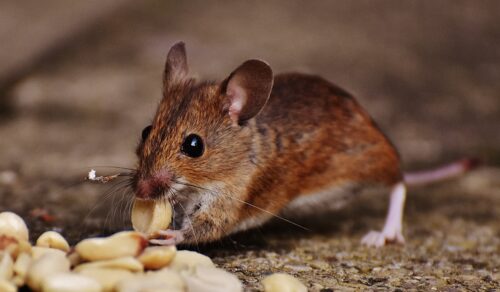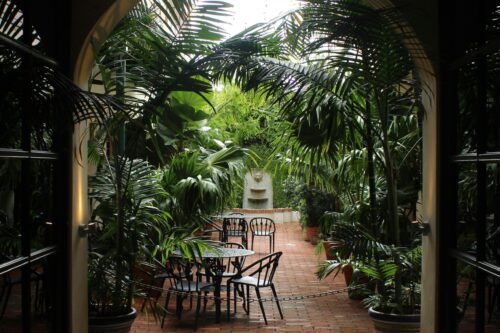Last Updated on January 12, 2024 by Jassica Mendez
Welcome to the vibrant city of Miami, where the sun shines and the tropical breeze sweeps through your new neighborhood. If you’ve recently become a resident of this lush paradise, you might be eager to transform your outdoor space into a tropical oasis. We’ll focus on gardening tips for new Miami residents tailored to Miami’s unique tropical climate, helping you cultivate a garden that thrives in the sun, rain, and heat.
Prepare for the Climate
For new residents in Miami, especially those who have recently relocated from places with a starkly different climate, adapting to the tropical environment can be an exciting challenge, particularly when it comes to gardening. This has proven to be a little tricky for new Miami residents. Whether you have moved from a cool, dry, and refreshing climate like the one in Denver or have run away from the brisk Northeastern climate off Totowa, NJ, adjusting to Miami’s tropical climate will take some time and practice.
Taking Your Tools with You
Taking our friends from Totowa as an example of the new Miami residents, they might want to take their tools with them—as avid gardeners. From that perspective, moving from Totowa to Miami often starts with finding reliable moving supplies in Totowa. This becomes crucial in safely transporting gardening tools and plants to Miami. Totowa, known for its comprehensive range of high-quality moving supplies, offers the perfect starting point for those embarking on their journey to Miami. Ensuring that all gardening essentials are carefully packed and transported allows new residents to quickly start exploring the unique gardening opportunities that Miami’s tropical climate offers.
Embracing Native Plants
Embracing native plants in Miami is not just a gardening choice; it’s a celebration of the region’s unique biodiversity. By incorporating these botanical gems into your garden, you’re creating a visually stunning landscape and participating in preserving Miami’s natural heritage. It’s a delightful journey where gardening becomes a harmonious dance with the native flora, fostering a connection to the local environment that is both enriching and sustainable.
Importance of Incorporating Local Flora
Miami’s unique ecosystem boasts a diverse array of native plants that are stunning and well-adapted to the local climate. By including these plants in your garden, you contribute to the region’s biodiversity and ensure a garden that can withstand the challenges of Miami’s tropical weather.
Showcase of Popular Native Plant Species
Discover the beauty of Miami’s native plants, such as the vibrant Bougainvillea, the hardy Simpson’s stopper, and the iconic Coconut Palm. These plants add a touch of local charm to your garden and require less maintenance, making them ideal for both seasoned and novice gardeners.
Understanding Soil Composition
Miami’s soil is known for its sandy texture and low nutrient content. Understanding this composition as one of the gardening tips for new Miami residents is crucial for successful gardening. Sandy soils drain quickly, which can be advantageous but may lack essential nutrients. Knowing your soil type lets you make informed decisions about plant selection and care.
Tips for Improving Soil Quality
Enhance soil fertility by incorporating organic matter like compost or well-rotted manure. This not only improves nutrient levels but also enhances water retention. Consider using mulch to protect your plants from the intense Miami sun and to further aid in moisture retention. Regular soil testing can also help you monitor and adjust nutrient levels for optimal plant growth.
Watering Wisely in the Tropics
Watering wisely in the tropics is an art that transforms a garden from surviving to thriving. In the lush embrace of tropical climates, where rainfall often accompanies the radiant sunshine, striking the right balance is key. To make this transition smoother, let’s go through some basic watering tips tailored to Miami’s unique climate.

Guidance on Consistent Watering Schedules
Establishing a consistent watering routine is crucial for tropical gardening success. In the warmth of Miami, plants often require more frequent watering. Aim for early mornings or late afternoons to prevent water evaporation and allow plants to absorb moisture effectively. Consider using a drip irrigation system for efficient and targeted watering.
Techniques for Preventing Overwatering and Underwatering
Striking the right balance between too much and too little water is key. Be attentive to your garden’s specific needs, as different plants may require different amounts of water. Invest in moisture meters to gauge soil moisture levels accurately. Mulching is another helpful practice, as it regulates soil temperature and conserves moisture, preventing both overwatering and underwatering.
Preparing for Miami’s Rainy Season Challenges
Miami’s rainy season, typically from June to November, brings refreshing downpours, but it can also pose challenges for gardeners. To navigate this period successfully, consider adjusting your watering schedule to accommodate the increased rainfall. Monitor your plants closely to prevent waterlogged soil and potential root diseases. Trim overgrown branches to reduce the risk of wind damage during heavy storms.
Implementing Proper Drainage Solutions in the Garden
Ensure your garden has proper drainage to prevent water stagnation and potential root rot during heavy rains. Evaluate the slope of your landscape and add well-draining soil or create raised beds for improved water flow. Incorporate permeable materials like gravel or mulch to enhance surface drainage. Regularly clear debris from gutters and drainage systems to avoid blockages.
Pest Management and Maintenance for New Miami Residents
Miami’s tropical climate is teeming with life, including the good and the pesky. Get to know your garden invaders – from mischievous aphids to cunning caterpillars. Understanding the common pests is the first step in maintaining a healthy garden. Keep an eye out for invaders like whiteflies, spider mites, and scale insects, which often make appearances in this lush environment.

Natural Remedies for Pest Control Without Harming the Environment
Say goodbye to harsh chemicals! Embrace eco-friendly solutions to keep your garden pest-free. Introduce beneficial insects like ladybugs and predatory mites, known as nature’s pest control agents. Neem oil and garlic spray are also friendly options to deter unwanted visitors without harming the environment or your beloved plants.
Seasonal Tasks for Keeping the Garden Vibrant and Healthy
Adapt your maintenance routine to the rhythm of Miami’s seasons. During the rainy season, ensure proper drainage to prevent waterlogging and trim any overgrown branches. In the dry season, supplement rainfall with extra watering and mulching to retain moisture. Keep an eye on nutrient levels and replenish the soil as needed. By aligning your tasks with the seasons, you’ll support your garden’s natural cycles and promote long-term health.

Thrive with the Gardening Tips for New Miami Residents
As you tend to your garden in the vibrant city of Miami, remember that it’s not just a patch of green but your own tropical oasis. Embrace the beauty of native flora, conquer pest challenges with eco-friendly solutions, and maintain your garden like a pro.
Now, take a moment to step back, inhale the fragrant air, and revel in the lush paradise you’ve created. Your garden is not just a hobby; it’s a celebration of Miami’s tropical spirit. So, put on your favorite sun hat, sip some iced tea, and bask in the glory of your thriving green haven. Enjoy every moment in your tropical oasis with gardening tips for new Miami residents—you’ve earned it!
